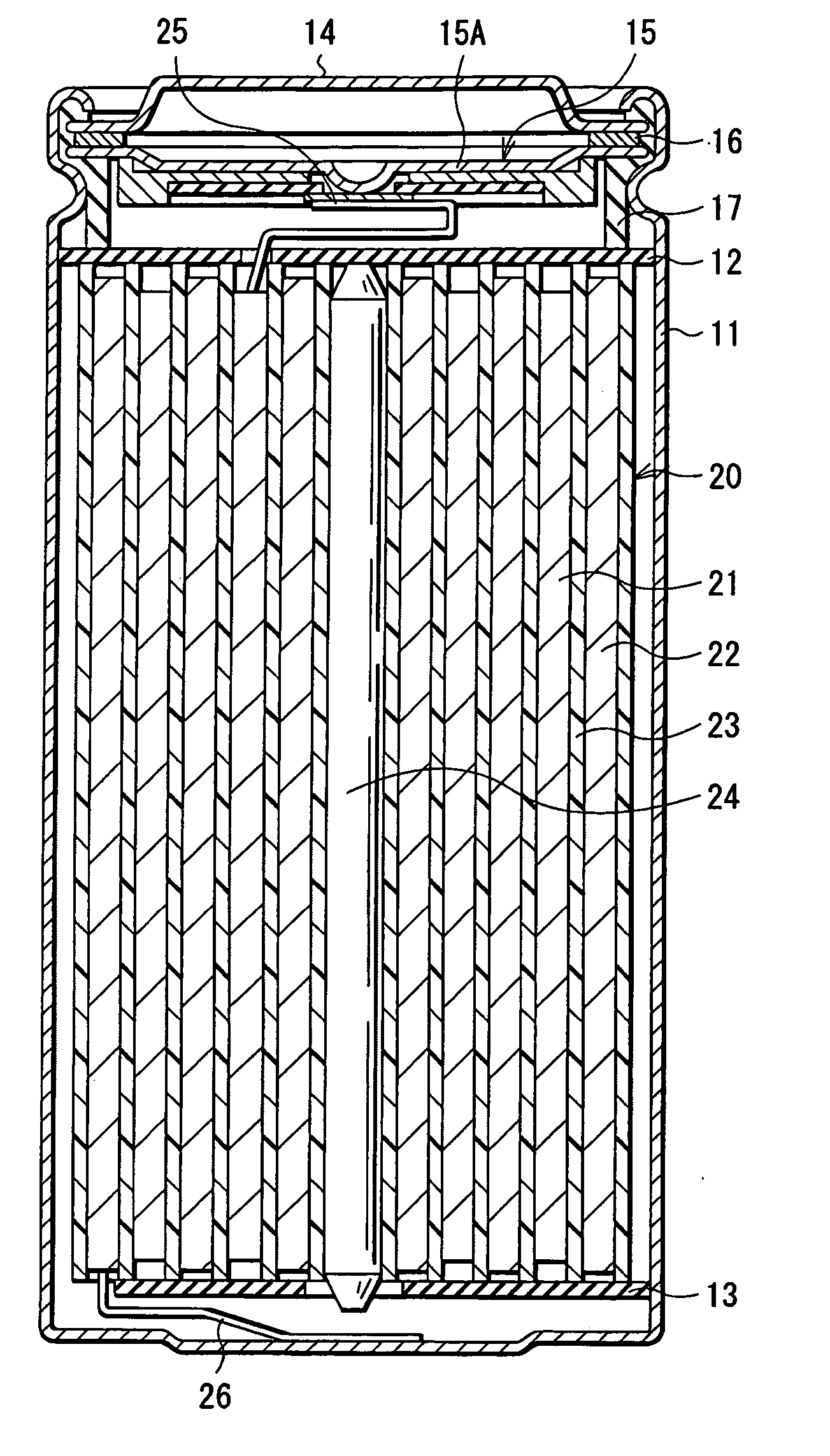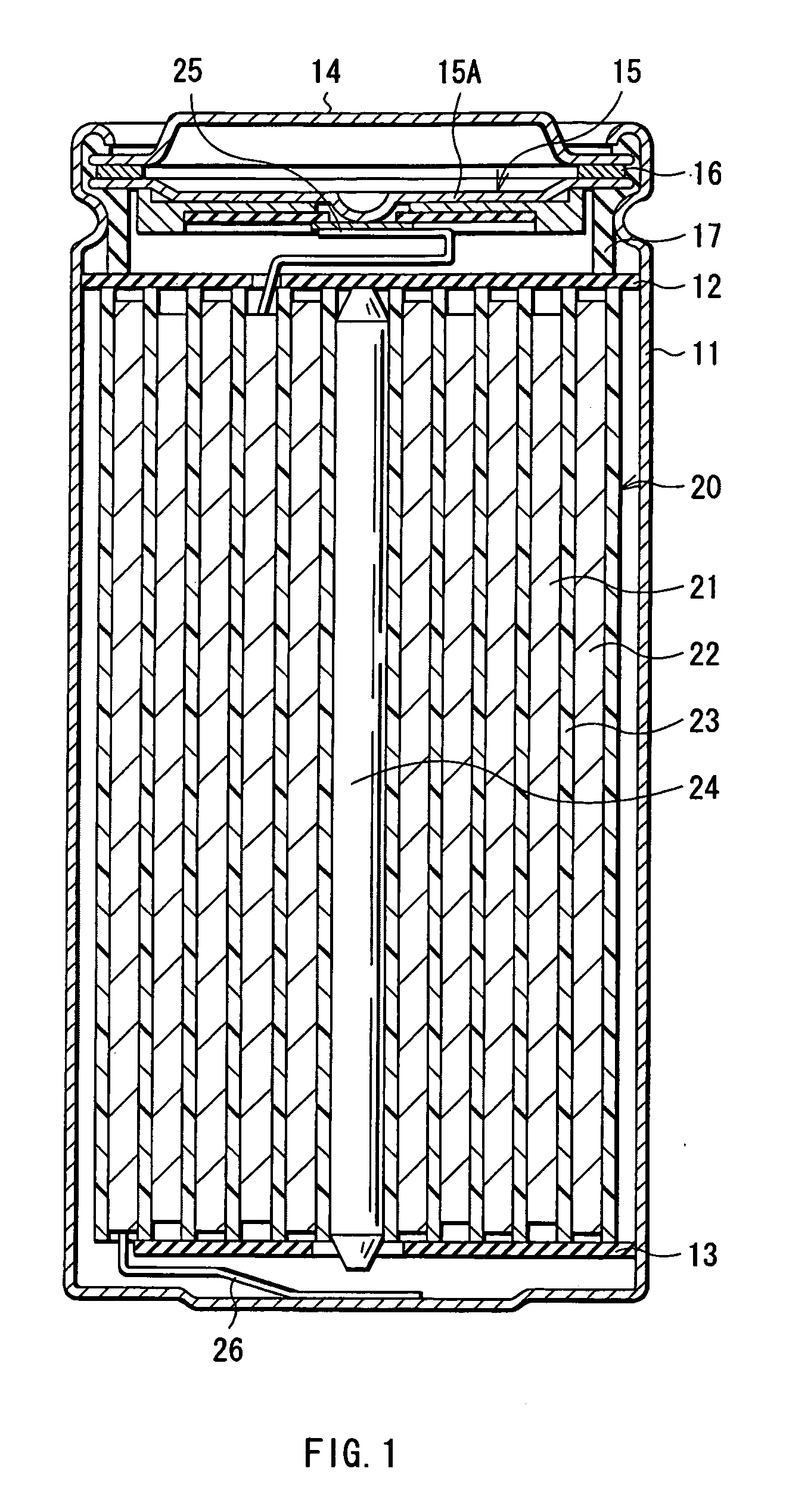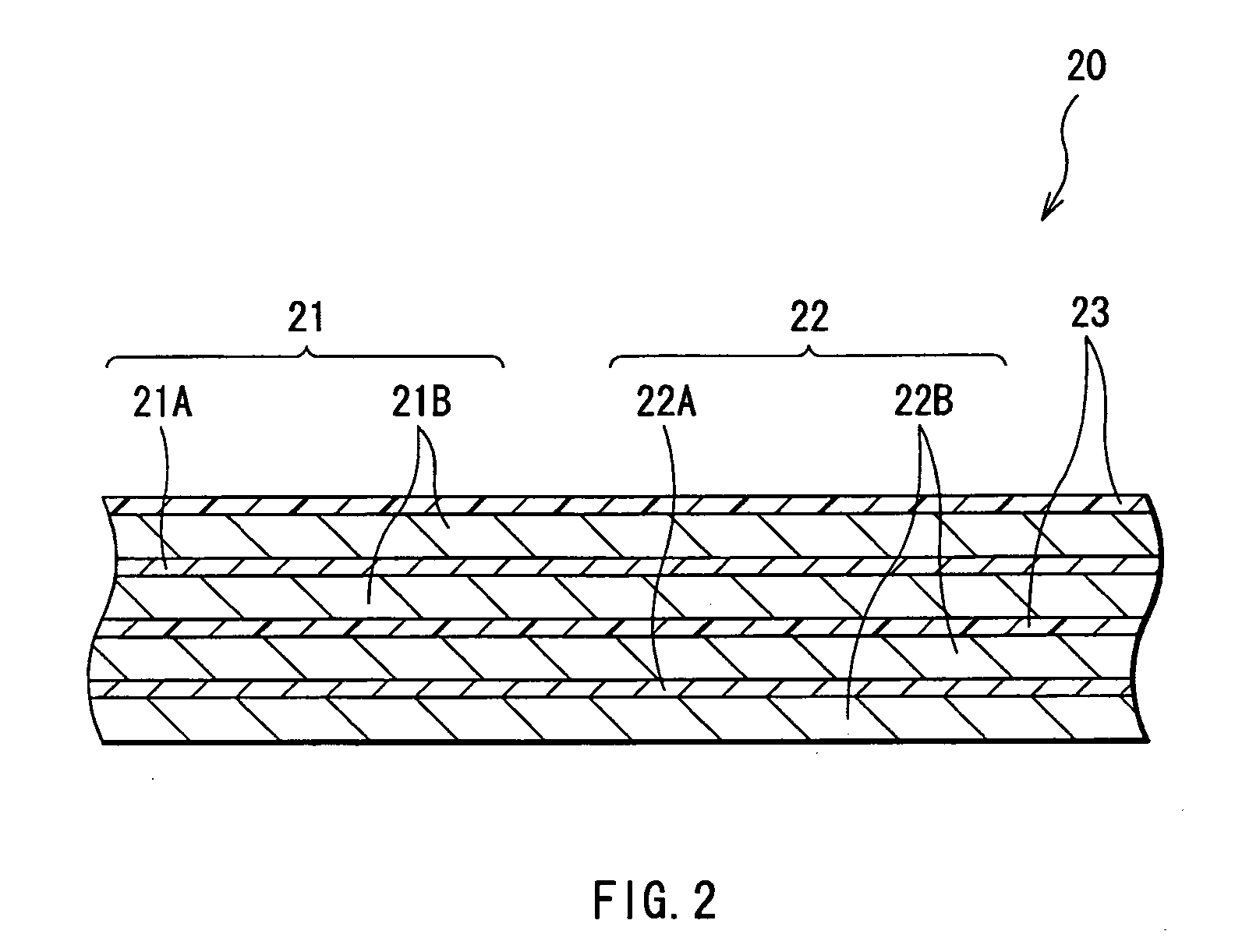Anode active material and battery using it
- Summary
- Abstract
- Description
- Claims
- Application Information
AI Technical Summary
Benefits of technology
Problems solved by technology
Method used
Image
Examples
examples
[0090] Further, specific examples of the present invention will be described in detail.
examples 1-1 to 1-8
[0091] First, an anode active material was formed. Sn—Co alloy powders and carbon powders as raw materials were mixed at a given ratio to obtain 10 g of the entire input powder amount, which was dry-blended. The mixture together with about 400 g of steel ball being 9 mm in diameter was set into a reaction vessel of a planetary ball mill of ITO Seisakusho Co., Ltd. Inside of the reaction vessel was substituted with argon atmosphere, ten-minute operation at a rotational speed of 250 rpm and 10-minute break were repeated until the total operation time became 20 hours. After that, the reaction vessel was cooled down to room temperatures, and the synthesized anode active material powders were taken out, from which coarse grains were removed through a 200-mesh sieve. The obtained anode active material powders were provided with composition analysis. The carbon content was measured by a carbon-sulfur analyzer, and the contents of tin and cobalt were measured by ICP (Inductively Coupled Pla...
examples 2-1 to 2-8
[0101] Secondary batteries were fabricated as in examples 1-1 to 1-8, except that a solvent obtained by mixing 4-fluoro-1,3-dioxolan-2-one expressed in Chemical formula 3, ethylene carbonate, and dimethyl carbonate at a mass ratio of 4-fluoro-1,3-dioxolan-2-one:ethylene carbonate:dimethyl carbonate=20:20:60 was used.
[0102] As Comparative examples 2-1 to 2-5 relative to Examples 2-1 to 2-8, secondary batteries were fabricated as in Examples 2-1 to 2-8, except that the anode active material powders were synthesized by mixing Sn—Co alloy powders and carbon powders as raw materials at a ratio similar to of Comparative examples 1-1 to 1-3 and 1-5, or except that Sn—Co alloy powders similar to of Comparative example 1-4 were used as an anode active material.
[0103] Regarding the obtained secondary batteries of Examples 2-1 to 2-8 and Comparative examples 2-1 to 2-5, cycle characteristics were measured as in Examples 1-1 to 1-8. The results are shown in Table 2 and FIG. 6. In FIG. 6, the ...
PUM
| Property | Measurement | Unit |
|---|---|---|
| Fraction | aaaaa | aaaaa |
| Fraction | aaaaa | aaaaa |
| Fraction | aaaaa | aaaaa |
Abstract
Description
Claims
Application Information
 Login to View More
Login to View More - R&D
- Intellectual Property
- Life Sciences
- Materials
- Tech Scout
- Unparalleled Data Quality
- Higher Quality Content
- 60% Fewer Hallucinations
Browse by: Latest US Patents, China's latest patents, Technical Efficacy Thesaurus, Application Domain, Technology Topic, Popular Technical Reports.
© 2025 PatSnap. All rights reserved.Legal|Privacy policy|Modern Slavery Act Transparency Statement|Sitemap|About US| Contact US: help@patsnap.com



